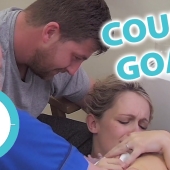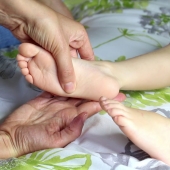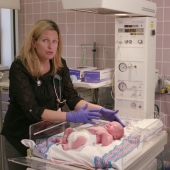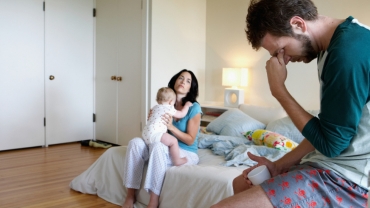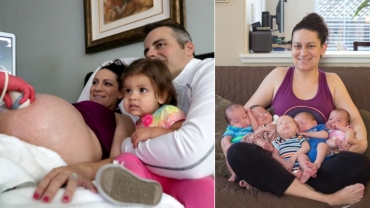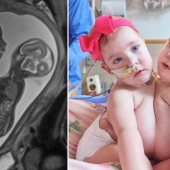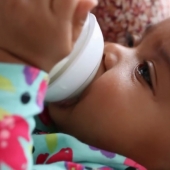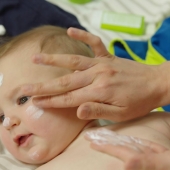Whooping cough is a highly infectious bacterial infection of the lungs and the airways. It begins with cold-like symptoms, so runny nose and a bit of a cough, and then over a two-week period that cough gets gradually stronger, and can develop into an intense whooping-like cough.
So a child may cough, cough, cough, and then gasp for air at the end of that cough. They will often turn red, and occasionally really struggle to catch the breath at the end of the cough. The coughing bouts can last for weeks and sometimes months. It's particularly important to watch out for whooping cough in young babies, as they may not have the same symptoms of the strong cough, but may have difficulty in breathing, and occasionally may stop breathing with the infection.
The incubation period for whooping cough can be anything between five and 21 days. If you've got whooping cough, you're infectious from when you first show symptoms to around three weeks after the first bout of heavy coughing.
But this period of infectivity can be reduced if you get a course of antibiotics for five days from your GP. It's really important if you think your child has whooping cough to go and see the GP to get a diagnosis. This is because it's very infectious, and can be harmful to some groups of people, especially newborn babies or babies under the age of six months and pregnant women.
This infection is best prevented through vaccination and the routine vaccination programme for children includes a vaccination against whooping cough at two, three and four months of age, and then again before school entry. The current vaccination programme also includes vaccinating pregnant women between 28 and 38 weeks of pregnancy, in order to give additional protection to their newborn children.
- 44 views

